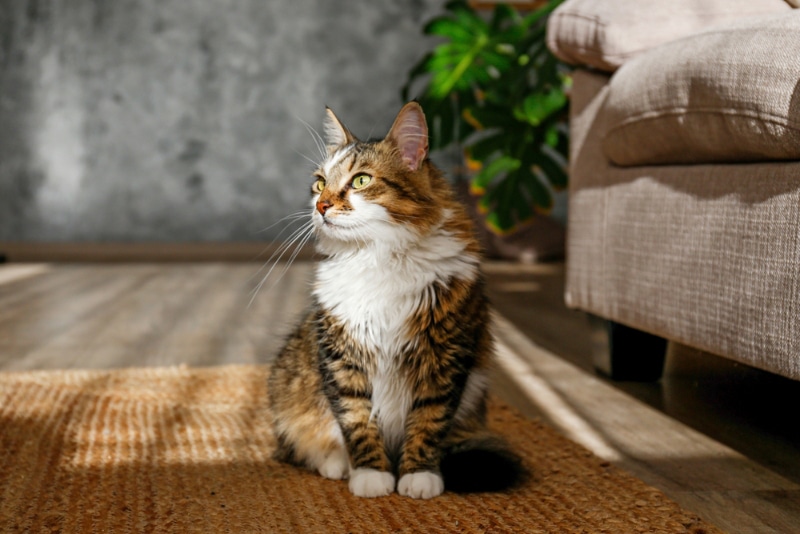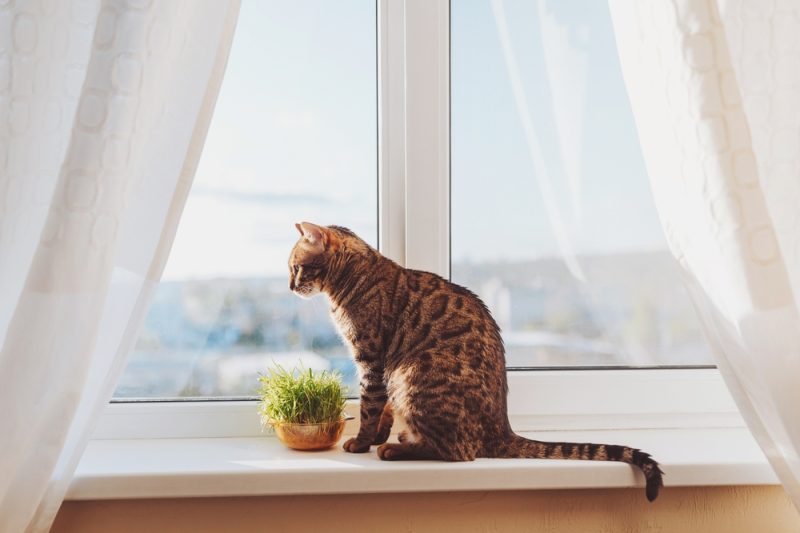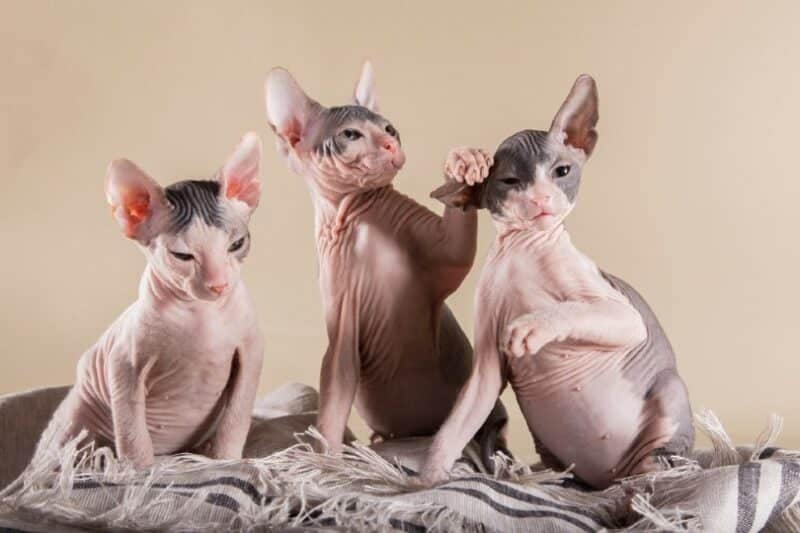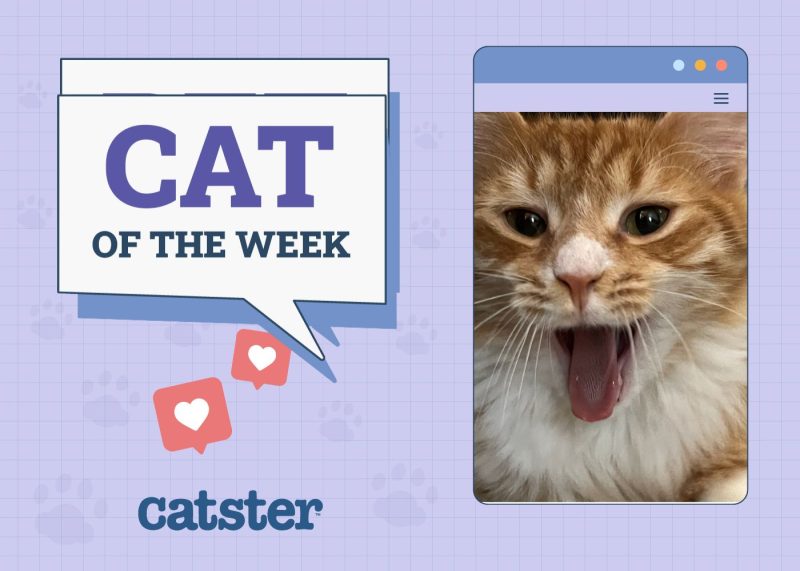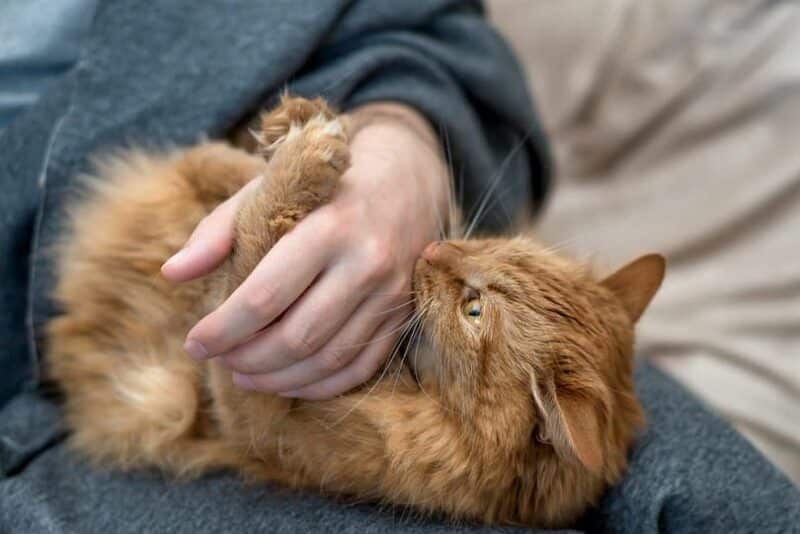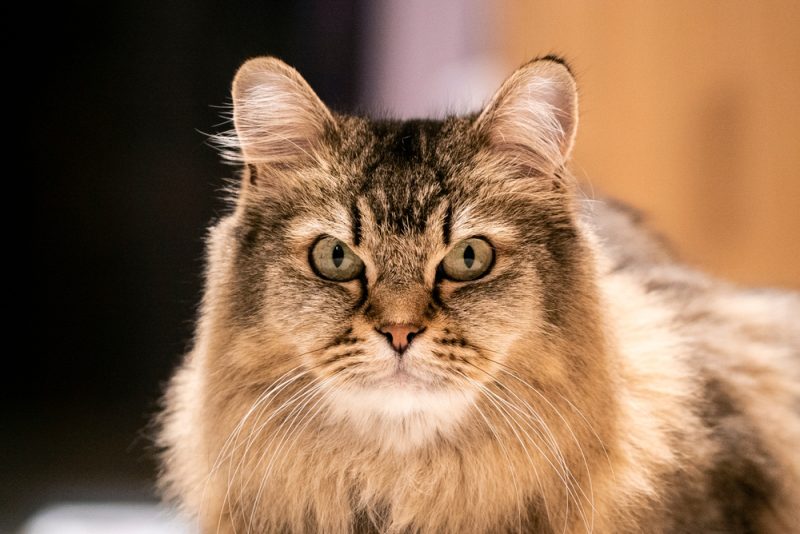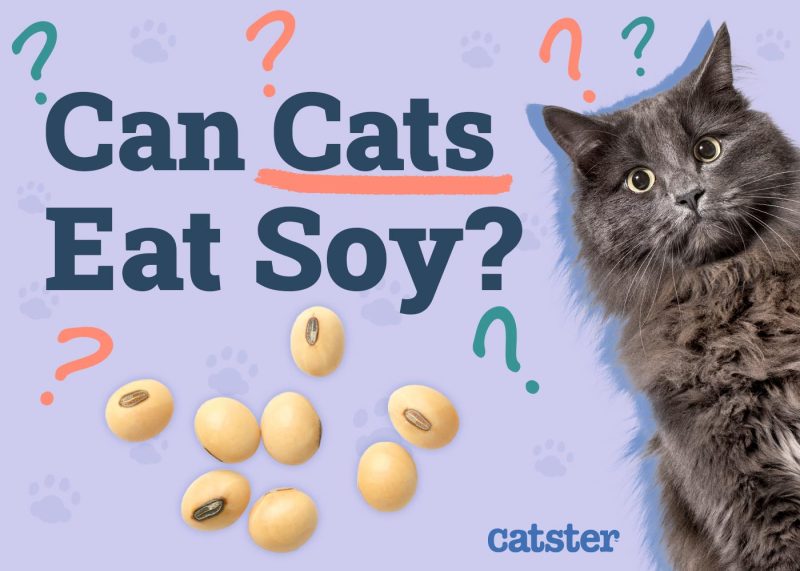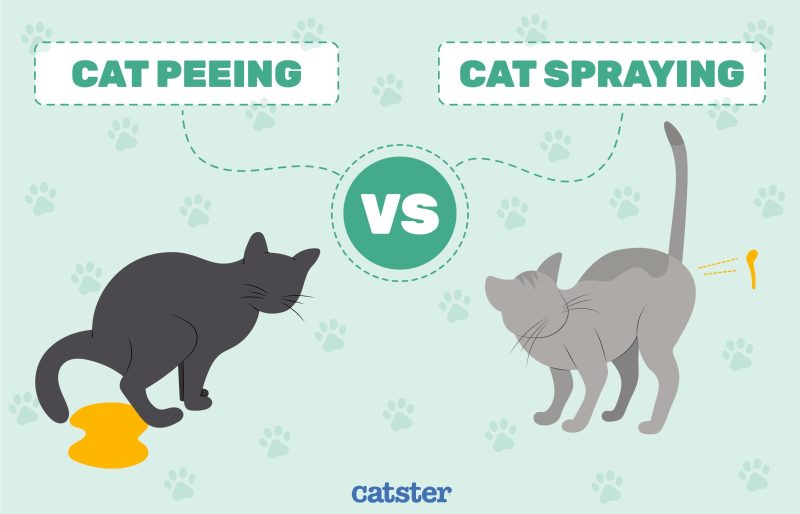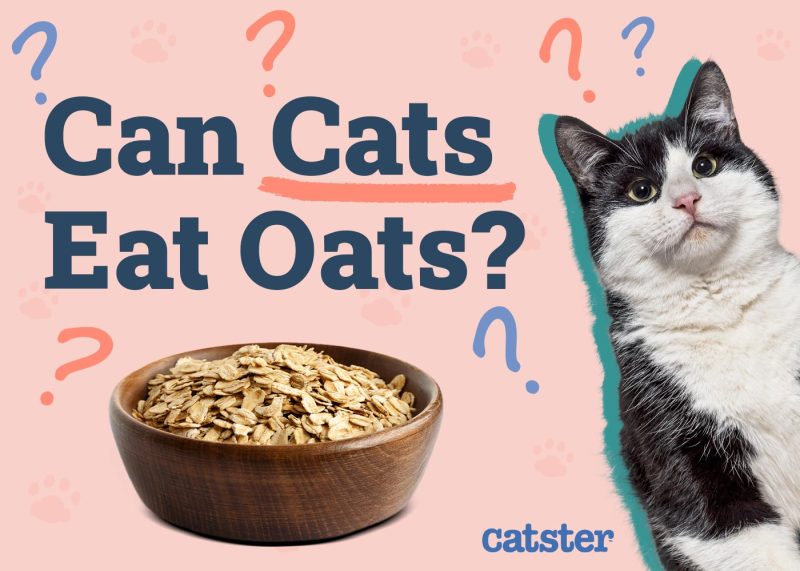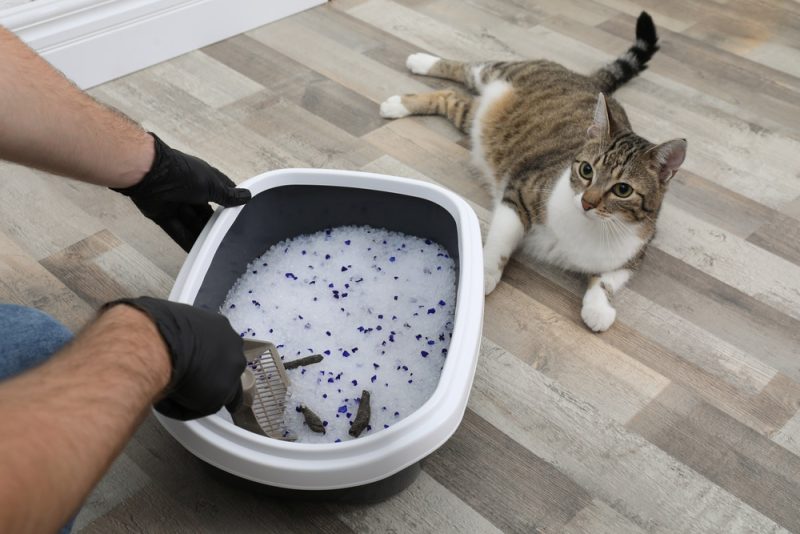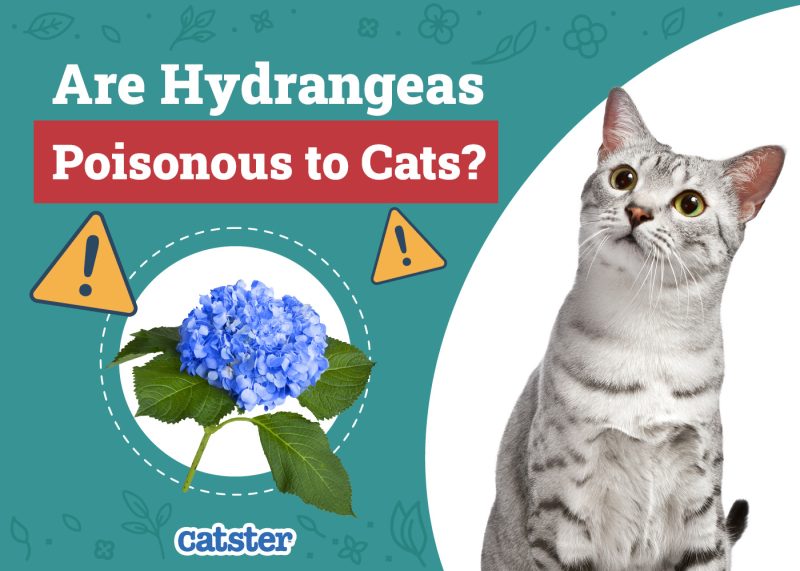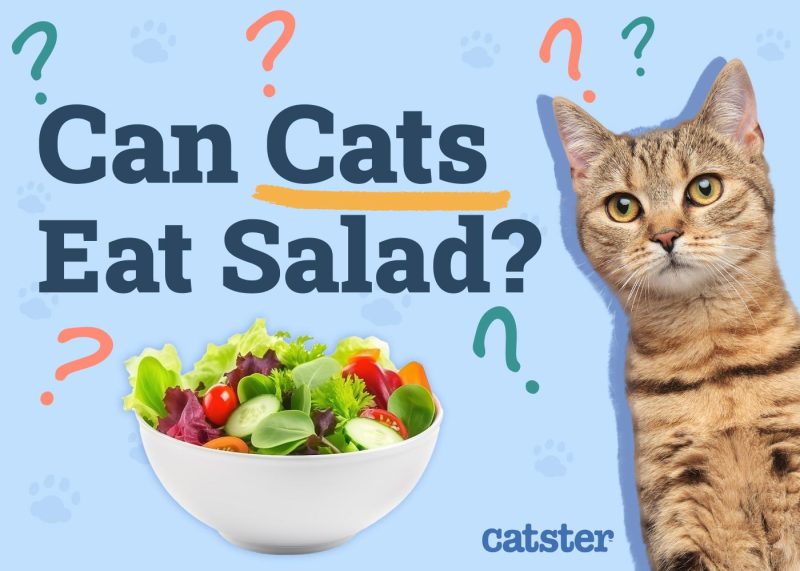It’s hard to think of a world without your beloved cat, which is why you might be willing to try just about anything to help your cat live longer. Most cats have a lifespan of 13–17 years, but with the right care, they can hit the 20-year mark.1
You can help your cat live longer by taking them for their wellness checks regularly, staying on top of their dental care, watching what they eat, encouraging exercise, and more. Your cat’s breed and genetics also have a role to play, but rather, put your energy into the things you can control.
Below are 12 tips on how to help a cat live longer.

The 12 Ways to Help a Cat Live Longer
1. Don’t Skip Wellness Appointments
When a cat is sick or injured, they hide their illness so as not to look weak and vulnerable. Unfortunately, this behavior can keep pet parents in the dark, unaware that anything is wrong with their cat. By taking your cat to their wellness exams, the vet will be able to pick up on issues through physical examination, as well as the blood, urine, and fecal tests they take. They’re then able to provide your cat with the treatment they need to prevent the illness from progressing or causing complications.
When a cat goes for regular checkups, the vet will have a better understanding of your cat’s health and history and will be able to pick up on small health changes much faster than a cat they have no relationship with.
Owners of cats who aren’t regularly seen by a vet won’t be aware of any health issues their cat might be struggling with until the illness is at an advanced stage. By this stage, it is much more difficult to manage.
2. Stay On Top of Their Dental Care
Many dental diseases can be prevented by brushing your cat’s teeth regularly with a cat-friendly toothbrush and toothpaste or a gauze pad. Some plaque can also be removed with some treats and kibble. You can also prevent dental problems by taking your cat for preventative teeth cleanings, which will be done by your veterinarian.
If you don’t stay on top of your cat’s dental care, they can develop dental problems such as gingivitis, abscesses, and tooth resorption, which can cause pain and stop them from eating, which will affect their overall health.
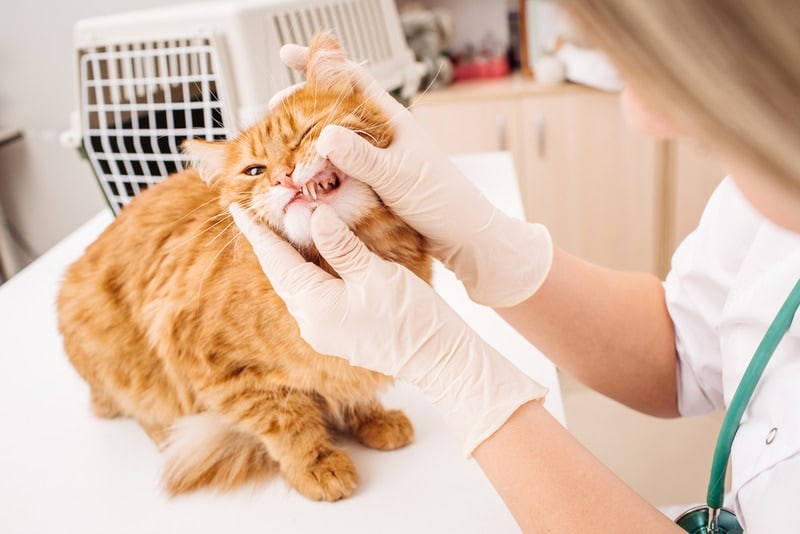
3. Watch Their Diet
You can opt to feed your cat dry food, semi-moist food, or canned food as long as it has the correct balance of nutrients and is appropriate to their life stage. Cat food should contain protein, fat, carbohydrates, vitamins, and minerals in appropriate quantities for their life stage and any illnesses they are experiencing. High-quality cat food will have everything your cat needs and will be nutritionally balanced and complete, which will help your cat thrive.
Cheap, low-quality cat food may lack many of the nutrients your cat needs, which can cause their coat to become dull and coarse and stunt their growth. If they’re not getting the nutrients they need, they may also become lethargic and sleep a lot more than a cat on a proper diet. An experienced veterinarian is a great person to seek dietary advice.
Need veterinary advice but can't get to the clinic? Catster recommends PangoVet, our online veterinary service. Talk to a vet online and get the answers and advice you need for your cat without having to leave your living room — all at an affordable price!

4. Watch Their Weight
Obese cats aren’t just overweight; they’re also at risk for developing serious health issues like cancers, diabetes, heart disease, arthritis, and more. Obesity can also reduce your cat’s lifespan. However, the good news is that it is preventable, and if you watch your cat’s weight, they may never become overweight.
You can maintain your cat’s healthy weight by feeding them appropriate portion sizes, not giving them table scraps, limiting how many treats you give them per day, and keeping them active.
You can watch their weight by keeping an eye on their shape, making sure that they have a tucked-in waist, a tummy that doesn’t bulge out, and ribs that you can feel. Your vet will also weigh your cat when they come for their checkups and will be able to tell you if your cat is at a healthy weight or over or underweight.
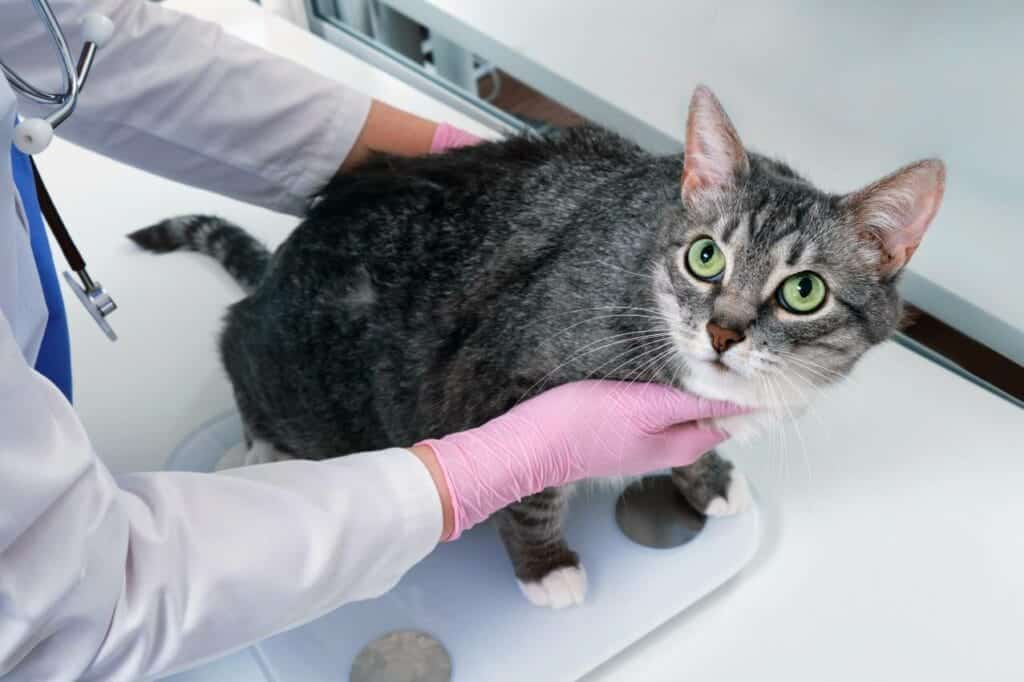
5. Exercise
Exercise is an important way to keep your cat at a healthy weight. It also contributes to a happier cat and combats boredom. Boredom can lead to behavioral issues, so it’s important to keep your cat simulated. 15–20 minutes of exercise per day can make a big difference to your cat and help them live longer.
You can keep your cat active by placing a cat tower in your home, which they can climb, scratch, and play on. You can also encourage play by using feather wands and laser pointers, which will get your cat running and jumping.
Wind-up toys and balls can keep your cat entertained and active while you work or are busy with something else. Puzzle feeders are another option you can use for food-motivated cats, which will keep your cat mentally and physically active.
Alternatively, if you want to surprise your cat with something cool, check out the Hepper Hi-Lo Cat Scratcher. It's not just a scratcher; it's a piece of modern furniture that your cat can play on. It's got a curvy design that's perfect for stretching and moving, and it's built tough with strong birch plywood and thick B-flute cardboard. You can adjust it to three different heights, which keeps cats entertained. Plus, it won't break the bank! Our cats love it, and we do too.
At Catster, we’ve admired Hepper for many years, and decided to take a controlling ownership interest, so that we could benefit from the outstanding designs of this cool cat company!
6. Keep Them Indoors
As fun as it might be for your cat to roam around freely outdoors, the reality is that it is not the safer option because they’re at risk of getting attacked by a wild animal, getting involved in cat fights, being hit by a car, being exposed to fleas, ticks, and other parasites, and contracting infectious diseases. Outdoor cats are not supervised and are exposed to many things that indoor cats are kept safe from.
If you have a cat and want them to play outside, you can let them into your yard and watch them as they play. You can also take your cat on walks around your neighborhood on a harness and leash. However, many cats are happy to stay indoors as long as they have a stimulating environment with posts to climb, perches to watch from, and toys to play with.
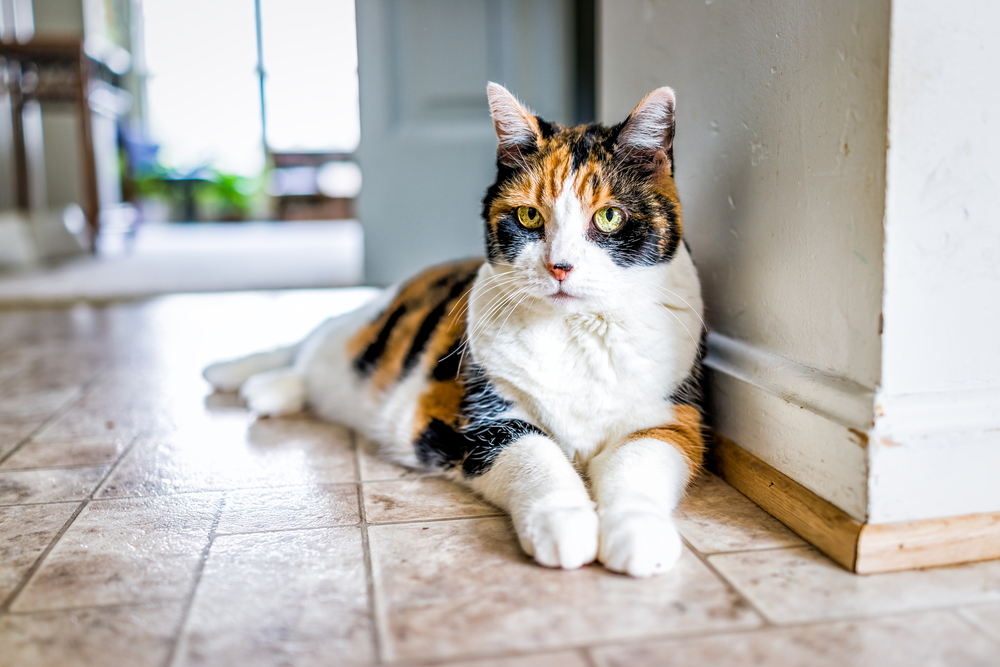
7. Groom Them Regularly
Cats are excellent groomers, but that doesn’t mean that you can’t help them out. Brushing your cat, trimming their nails, and checking their coat for matts and parasites are just a few ways to bond with your cat while keeping them clean and well groomed. But how does it help your cat live longer? Well, brushing your cat is important for several reasons.
Firstly, it removes dirt and loose hairs from their coat. Secondly, it helps you stay informed on the condition of your cat’s coat and skin. As you brush through their fur, consciously look out for any injuries or sore spots on their skin, suspicious-looking lumps or bumps, and the presence of ticks and fleas. If you see anything concerning, reach out to your vet.
8. Keep Their Litter Box Clean
If you want to avoid odors in your home, keep your cat’s litter box clean by scooping out urine and fecal clumps at least twice a day. Cats also appreciate a clean litter box and may refuse to use it if you haven’t kept it clean. A dirty litter box is full of bacteria and parasites and can cause urinary tract infections (UTIs) in your cat.
A clean litter box will also help you spot changes in your cat’s bowel movements and how often they urinate. You’ll be able to notice if they have blood in their poop, haven’t pooped in a few days, or if they are going much more frequently. These signs could indicate that they’re either constipated or have diarrhea. If your cat is struggling to urinate, it could be because they have a UTI, or if they’re urinating more than ever, it could be a sign of diabetes.
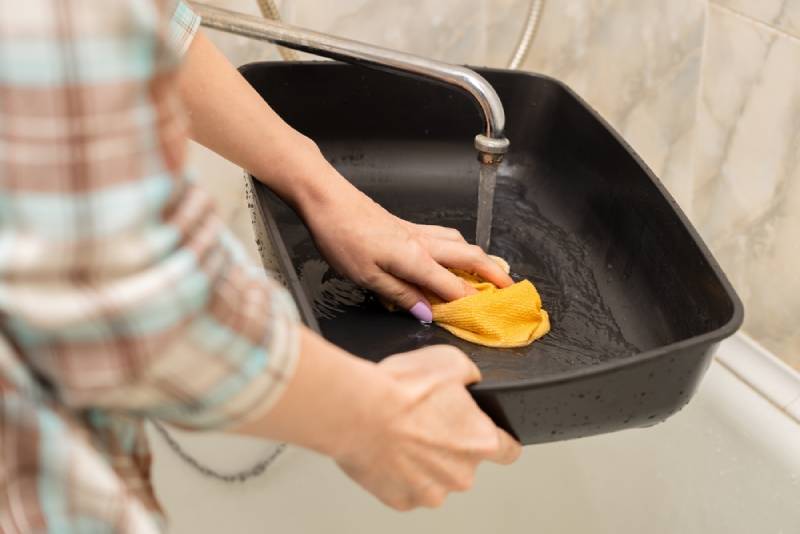
9. Encourage Water Intake
Staying hydrated is important for good health as it keeps the body functioning normally and reduces the risk of certain urinary crystals forming. Unfortunately, cats generally don’t drink much water due to their desert ancestry, which is why it’s up to the owner to encourage water intake. This can be done by placing several water bowls around your home for easy access and adding moisture-rich foods in the form of toppers or canned food to your cat’s diet.
You can spark your cat’s interest by letting them drink directly from the faucet a couple of times a day. Many cats may have a preferred type of water receptacle, such as a wide, flat bowl or water fountain, so explore the various options and see which works best for your cat.
Making sure your cat drinks enough water can require a little creativity and the right fountain choice! A nicely made product like Hepper's Stainless Steel Cat Water Fountain will encourage your cat to stay hydrated by providing fresh, flowing water. We particularly like this model because it's easy to clean and offers excellent triple filtration, multiple flow modes, and a large capacity.
At Catster, we’ve admired Hepper for many years and decided to take a controlling ownership interest so that we could benefit from the outstanding designs of this cool cat company!Our Favorite Cat Water Fountain
10. Stay Up to Date on Vaccinations
Whether your cat stays indoors at all times, or you allow them to play outside, they need to be vaccinated and receive booster shots when necessary. Vaccinations protect your cat’s health and prevent them from getting severely sick from specific pathogens. Not only is it important for your cat but also for you as it protects the owner from contracting certain diseases, such as rabies.
Kittens should receive their first vaccination at around 6-8 weeks of age and will generally receive one or two more within the next few months. Adult cats generally need annual exams, at which time your vet can discuss how frequently your adult cat needs vaccine boosters.
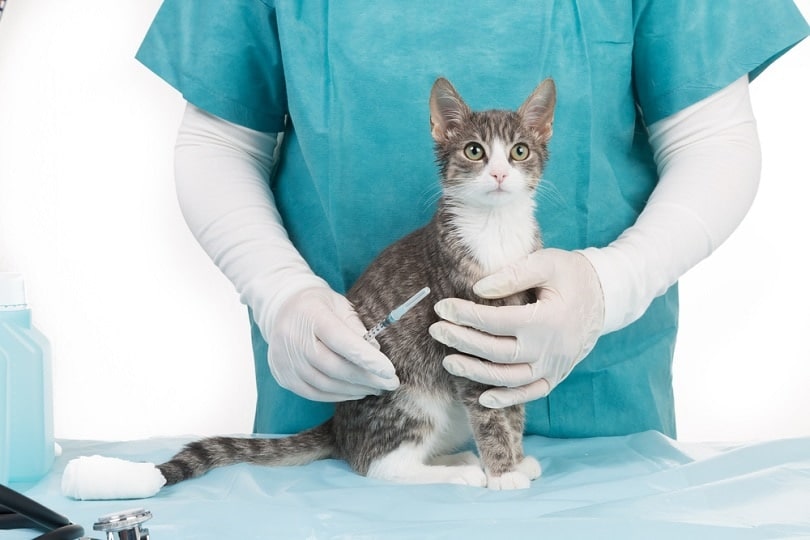
11. Microchip Your Cat
Cats are excellent climbers, but sometimes their collars get stuck on branches, which is why breakaway collars are so important, as they protect against strangulation. The downside to these collars is that cats tend to lose them quite easily, and without their collar and ID tag, they’re no longer identifiable. If someone sees a cat without an ID tag, they won’t have any way to return them to their owner.
Although collars with ID tags are the easiest way to identify a cat, microchips are a permanent method of identification that your cat cannot lose. If your cat loses their collar and is microchipped, they can be taken to the vet to be identified, and you’ll be phoned to collect your cat.
12. Neuter Or Spay Your Cat
Neutering your cat prevents unwanted pregnancies. It also stops your cat from roaming and wanting to find a mate to reproduce with. Roaming cats are more likely to get into cat fights, be hit by a car, or be attacked by another animal. Neutering your cat will also reduce overpopulation and ultimately reduce the euthanasia rate in animal shelters.
Neutering or spaying your cat will also prevent certain diseases that unaltered cats are at risk for, such as mammary cancer.
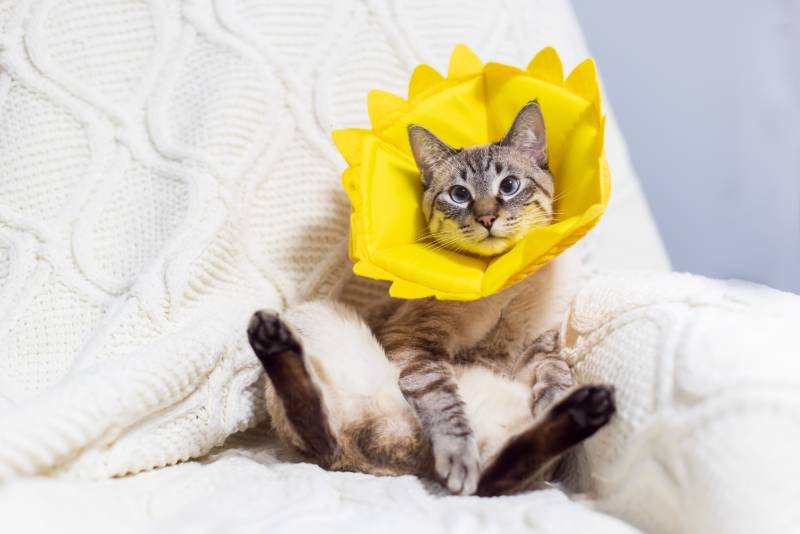

Conclusion
Your cat can live a long and happy life with the right care. By microchipping your cat, keeping them hydrated, up to date on vaccinations, well groomed, active, and staying indoors, watching their weight and diet, keeping their litter box clean, being intentional with dental care, getting them neutered or spayed, and taking them for their annual vet appointments, you can help them live longer, stay healthy, and thrive.
Featured Image Credit: evrymmnt, Shutterstock
